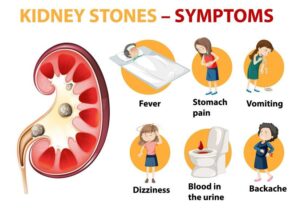Infertility Treatment: A Comprehensive Guide to Understanding and Managing Infertility Infertility is a condition that affects many couples worldwide, causing emotional distress and posing challenges for those trying to conceive. Understanding the causes, available treatments, and lifestyle changes that can improve fertility is essential for anyone navigating this difficult journey.
Understanding Infertility Infertility is defined as the inability to conceive after one year of regular, unprotected intercourse. It can be caused by factors affecting either the male, the female, or both partners. Infertility is generally categorized into two types: – Primary Infertility: When a couple has never been able to conceive.
- Secondary Infertility: When a couple has previously conceived but is now unable to.
Common Causes of Infertility
- Female Factors: – Ovulatory Disorders: Issues with ovulation, such as Polycystic Ovary Syndrome (PCOS), hormonal imbalances, or premature ovarian failure, are common causes of female infertility.
- Tubal Blockages: Blocked or damaged fallopian tubes can prevent the sperm from reaching the egg, often caused by pelvic inflammatory disease, endometriosis, or previous surgeries.
- Uterine Issues: Abnormalities like fibroids, polyps, or structural abnormalities in the uterus can hinder implantation or increase the risk of miscarriage.
- Age: Fertility naturally declines with age, particularly after the age of 35, due to a decrease in both the quantity and quality of eggs.
- Male Factors : – Low Sperm Count: A lower than normal concentration of sperm in semen is a common cause of male infertility.
- Poor Sperm Motility: If sperm do not move effectively, they may not reach the egg.
- Abnormal Sperm Morphology: Irregular sperm shape can impair their ability to fertilize the egg.
- Erectile Dysfunction: Difficulties in maintaining an erection can affect a man’s ability to conceive.
- Testicular Conditions: Varicocele, undescended testicles, or infections can impair sperm production and quality. Lifestyle Factors Affecting Fertility Lifestyle choices can significantly impact fertility in both men and women. Factors such as smoking, excessive alcohol consumption, poor diet, lack of exercise, and stress can all contribute to infertility. Maintaining a healthy lifestyle can improve overall fertility and increase the chances of successful conception. Infertility Treatments 1. Medications: – Ovulation Induction: Medications such as Clomiphene Citrate and Letrozole stimulate ovulation in women who have irregular or absent menstrual cycles.
- Hormone Treatments: Hormone therapies can help regulate ovulation or correct hormonal imbalances in both men and women.
- Gonadotropins: Injectable hormones can be used to stimulate multiple egg production in women undergoing assisted reproductive technologies (ART).
- Assisted Reproductive Technologies (ART):-
Intrauterine Insemination (IUI): In this procedure, sperm is directly placed into the uterus around the time of ovulation to increase the chances of fertilization. . – In Vitro Fertilization (IVF):Eggs are retrieved from the ovaries and fertilized with sperm in a lab, and the resulting embryo is implanted in the uterus. IVF is often used when other treatments have failed or when there are severe fertility issues.
- Intracytoplasmic Sperm Injection (ICSI): A single sperm is injected directly into an egg, often used when there are severe male fertility issues.
- Donor Eggs or Sperm: When one partner’s eggs or sperm are not viable, using a donor can be an option.
- Surgical Treatments : – Laparoscopy: This minimally invasive surgery can be used to remove blockages, fibroids, or endometriosis that may be affecting fertility.
- Varicocele Repair : Surgery to correct varicoceles in men can improve sperm quality and count. Alternative and Complementary Therapies Some couples find success with alternative treatments like acupuncture, herbal supplements, or stress reduction techniques. While the effectiveness of these therapies varies, they can be complementary to traditional medical treatments. Emotional Support and Counseling Infertility can be emotionally taxing, leading to stress, anxiety, and depression. Counseling , support groups, and open communication with your partner are crucial for managing the emotional aspects of infertility.
Conclusion Infertility is a complex issue, but with advances in medical science, many couples can achieve their dream of parenthood. Understanding the underlying causes, exploring treatment options, and making healthy lifestyle choices are essential steps in the journey toward conception. If you’re struggling with infertility, consult with a fertility specialist to explore the best options for you.
Infertility Treatment is a common problem, and it is possible to solve it. The right treatment plan can be made by consulting a doctor.
Call Now -7835887839




